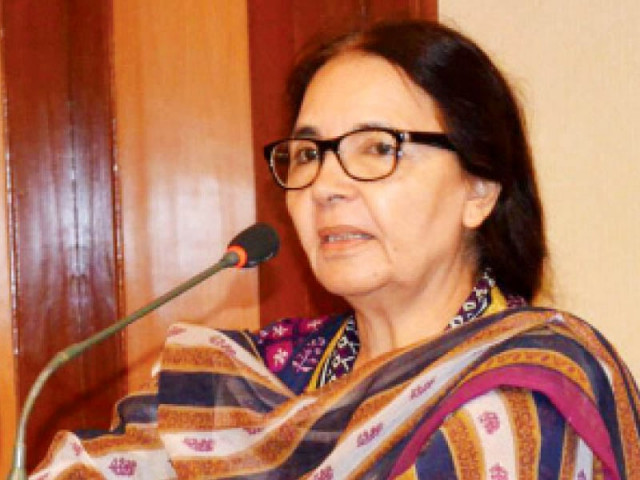Words of praise: Malala a befitting inspiration for her peers, say educationists
Hope her struggle will inspire others to fight for their right to education

Malala Yousufzai, the youngest-ever Nobel Peace Prize laureate, is hoped to serve as an inspiration for Sindh’s youth, who wish to pursue education in the face of their formidable foe - a derelict and dying public education system.
“When teachers do not show up at schools in our town, we go to their doorstep with a request to join the students who await them,” Sanaullah Memon, a 21-year-old resident of Daro - one of the union councils of Sujawal district told The Express Tribune. “We even feel intimidated at times when we receive threats from the teachers who belong to influential families, but this is nothing compared to what the much younger girl in Swat had braved.”
Reacting on the Nobel Prize for Malala, Memon, who is currently pursuing a degree in electronics engineering from Mehran University of Engineering and Technology after studying from the Government Boys Primary School in Daro, said that the ‘honourable recognition’ will only strengthen his resolve and that of his friends who want to see much better educational opportunities for their younger ones than they had.
Even Sadiqa Salahuddin, founder and executive director of the Indus Resource Centre that helps communities bring about positive change in their lives, appeared thrilled by the prospects.
“I am happy with her recognition, because I too work with the likes of Malala in different towns and villages of Sindh,” she said. “They, too, desire to bring a change within their villages and communities.”
For her, the struggle of this brave young girl was set to inspire a new vigour into girls who will follow in her footsteps to achieve what seemed impossible before. “If the civil society and the government promote Malala in a befitting manner, this will certainly increase the motivation among students of rural areas, especially the girls,” said Salahuddin. “The girls’ enrolment at the schools can be substantially increased and the tradition of being casual about education in our communities can be reduced.”
Aziz Kabani, the managing director of the Sindh Education Foundation, appeared on the same page with Salahuddin as far as Malala becoming the inspiration for individuals was concerned. “To receive a Nobel Peace Prize being a resident of a country that has been in crisis due to violence and terrorism for over two decades now is a colossal achievement by itself,” he said. “In a society that is infested with violence, all the individuals who resist the aggressors should be made an icon for others to follow.”
For Kabani, however, the education system that has been plagued with a multitude of issues requires more concrete steps to inspire a significant change.
The words ring true for the young education rights campaigner, Malala, who dedicated her Nobel peace prize to the ‘voiceless’ children around the world.
The 17-year-old, who heard the news while she was in a chemistry lesson at school in Birmingham, central England, had said she was honoured to be the youngest person to receive the accolade.
“The award is for all the children who are voiceless, whose voices need to be heard,” Malala told a press conference, held at the end of the school day so she wouldn’t miss class.
The Norwegian Nobel Committee gave the award to Malala and Indian activist Kailash Satyarthi for their struggle against the repression of children and young people and “for the right of all children to education”.
Published in The Express Tribune, October 12th, 2014.



















COMMENTS
Comments are moderated and generally will be posted if they are on-topic and not abusive.
For more information, please see our Comments FAQ